“For we've received orders for to sail back to Boston…”
— Sea shanty, as sung by Quint in JAWS
By not showing the shark in JAWS, Steven Spielberg hijacks our fear of the unknown to create something so much scarier than he could ever depict with a mechanical shark.
Doctors’ offices work exactly the same way. The doc coming through the door results in hand might as well be announced by that two-note crescendo: “duh duh… duh duh…” For a sick person and their loved ones, half the battle of dealing with chronic illness is learning to swim with the sharks of worry and uncertainty. Peace of mind depends on an awareness that our imaginations will create monsters in the depths worse than anything that might actually be down there.
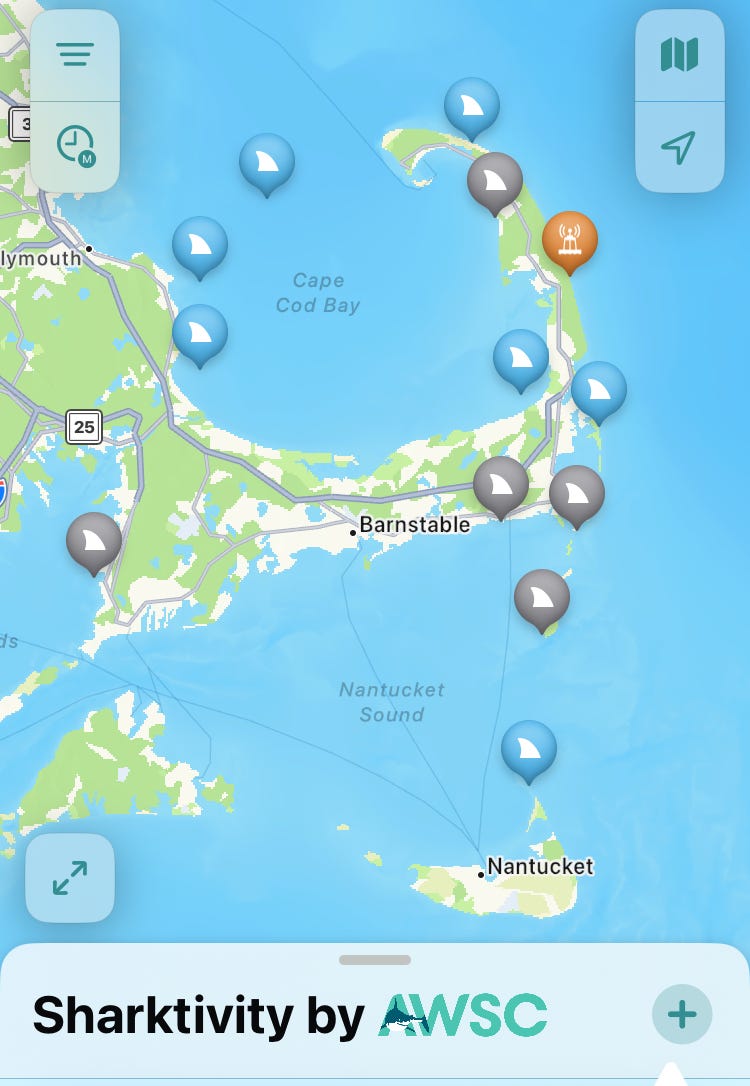
I spent the last two weeks back on Cape Cod for some family health stuff mentioned in my last post. (This trip was last-minute and unannounced so my apologies to friends if I didn’t reach out).
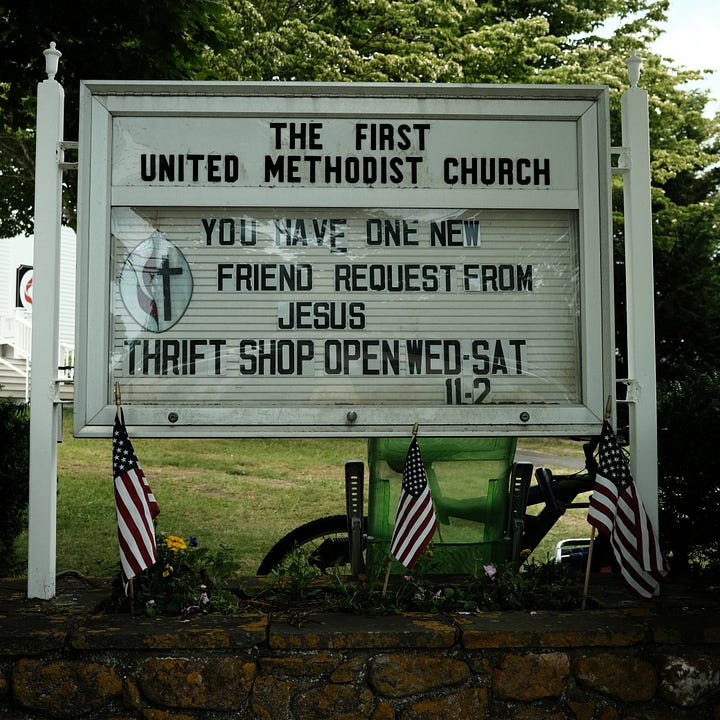
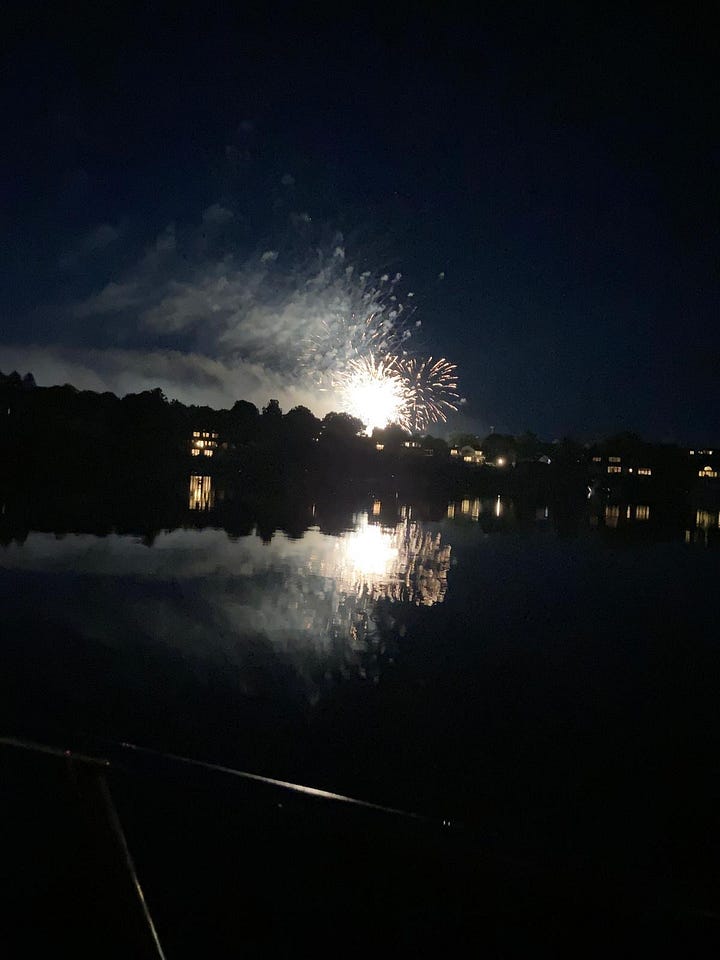
The Cape is a place known for preserving the nostalgic charms of an American summer. It’s also the great white shark capital of the North Atlantic. So, every summer, the local cinema screens JAWS, which was filmed just off the Cape, on Martha’s Vinyard, back when shark sightings in the area were rare by today’s standards.
Other than that one trip to the movies, my main source of decompression while I was on the Cape, was paddling a surfski. I tried to stay on Irish time and get on the water before dawn, and log some miles before anyone who might need me was awake.
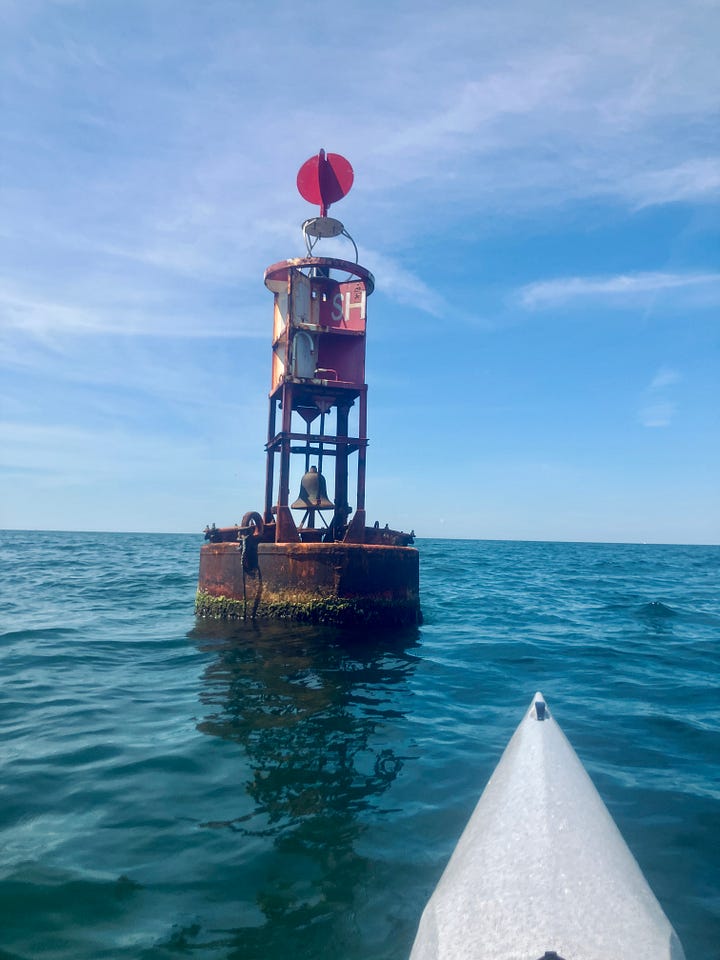
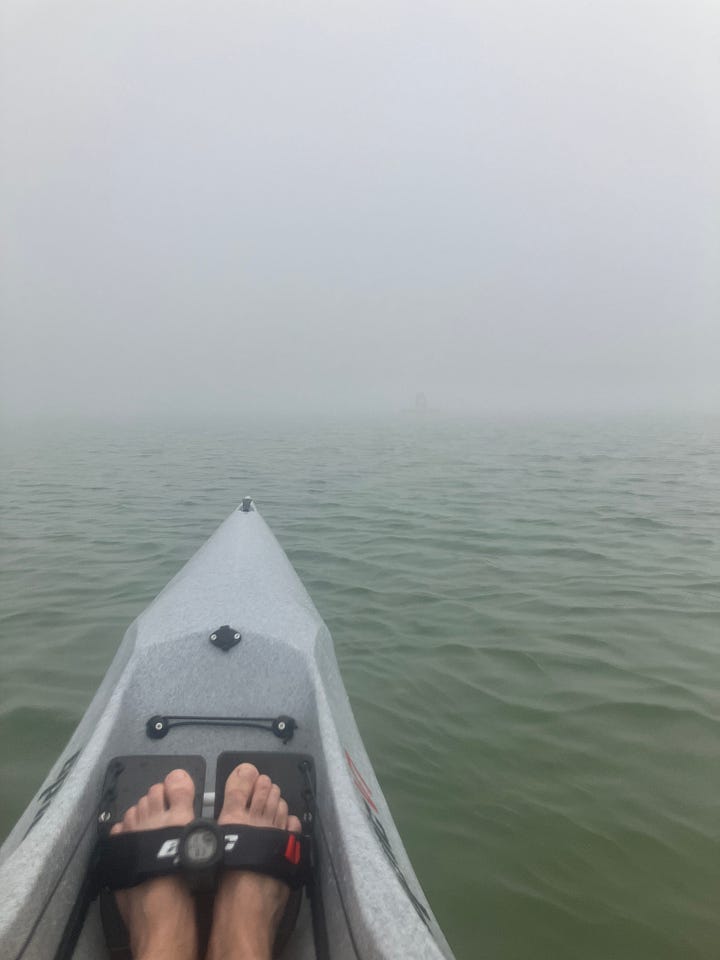
I paddled in the sun and dense fog and played in the swift tide races that rip through the maze of sandbars where the Atlantic meets Nantucket Sound. I dodged insane 4th of July weekend boat traffic and explored a sunken forest where the Atlantic was reclaiming an island.
This was my first time paddling a surfski. It was the perfect platform for practicing my wing paddle technique, with hips free to rotate more than in a sea kayak. I love the simplicity and minimalism of the ski, which of course comes with a tradeoff in self-sustainment.
It’s like the difference between trail running and backpacking. If you just want to get outside, there’s no simpler way than heading for the hills for a trail run. But you would need a support van to go trail running for a week, whereas you could walk forever with a backpack and some basic gear.
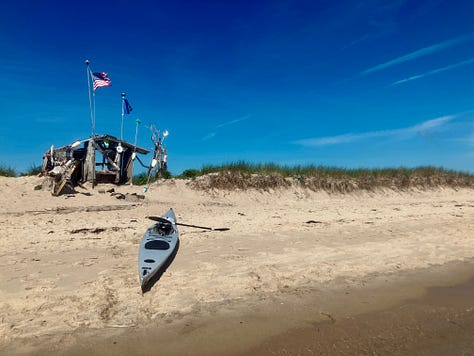
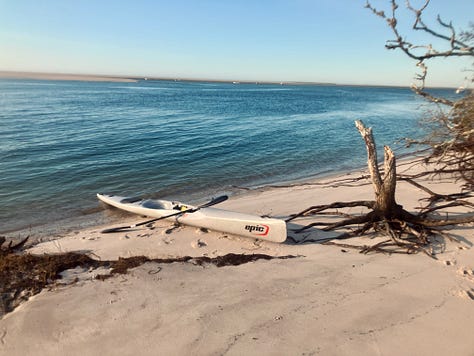
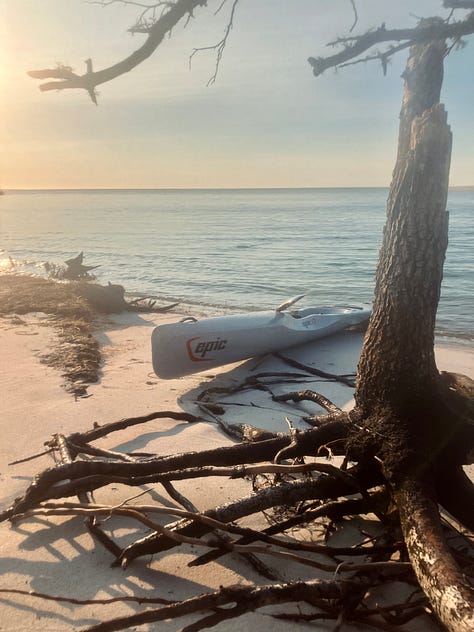
“Face the shark”
Family commitments and minimalist gear weren’t the only things limiting my range in the ski. “The man in the grey suit” was a real concern.
I saw at least five dead seals, washed up with visable bite marks, one bitten half. The Sharktivity App, from the local Atlantic White Shark Conservency (AWSC) confirmed that great whites were everywhere. It also happend to be Shark Week, so they were on TV too.
I stayed close to shore and remained alert for the eirie stillness that indicates the presence of a shark——as the rest of the food chain swims away. My first aid kit contained a tourniquet and Israeli bandage, which I was statistically more likely to need in the event of a propeller strike.*
Like most objective hazards on the water, shark safety starts with mindset and a refusal to panic. According to Navy SEALs, who train in great white territory off San Diego, the procedure for shark encounters in open water is to face the shark. Prey swims away and triggers the shark’s killer instinct.
In his viral “Make Your Bed” commencement speech Admiral McRaven uses “face the shark” as a metaphor for dealing with adversity and bullies.
Facing the shark, one day at a time, is how you get through a family emergency that won’t be resolved any time soon. It’s how you keep paddling when the presence of great whites isn’t a question of if but where. When you face the shark, you approach life and the sea with respect and awe rather than fear and trepidation.
I read Peter Benchly’s JAWS on the flight home.
*Note: Don’t try this at home. This is not advice. I’m describing calculated risks in extremely familiar waters, controlling for objective danger as much as possible while taking full and sole responsibility for my own safety.
P.S. When I’m not having adventures, I’m helping other people write about theirs. If you or someone in your circle has an amazing story to tell, I'd love to hear it. I have some availability for new ghostwriting and editing projects.
— Charlie
Kokatat is the official gear sponsor of The Lap.
The lap will be fueled by Resilient Nutrition’s Long Range Fuel and bars.
Expedition coffee by 3fe.
CH Marine will be providing a VHF radio and other safety equipment.
Camp kit and cooking gas provided by Paddle & Pitch. Trolley by KCS.
REAL Field Meals at a discount from Adventure.ie.










That sucks, Charlie—sending all the good vibes to you and the family. Also, now I don't feel as weird tucking a HALO seal in my daughter's backpack...
Tourniquets and Isreali bandages belong in every first aid kit. Great read, Charlie.